How to Survive Deadly Mosquitoes
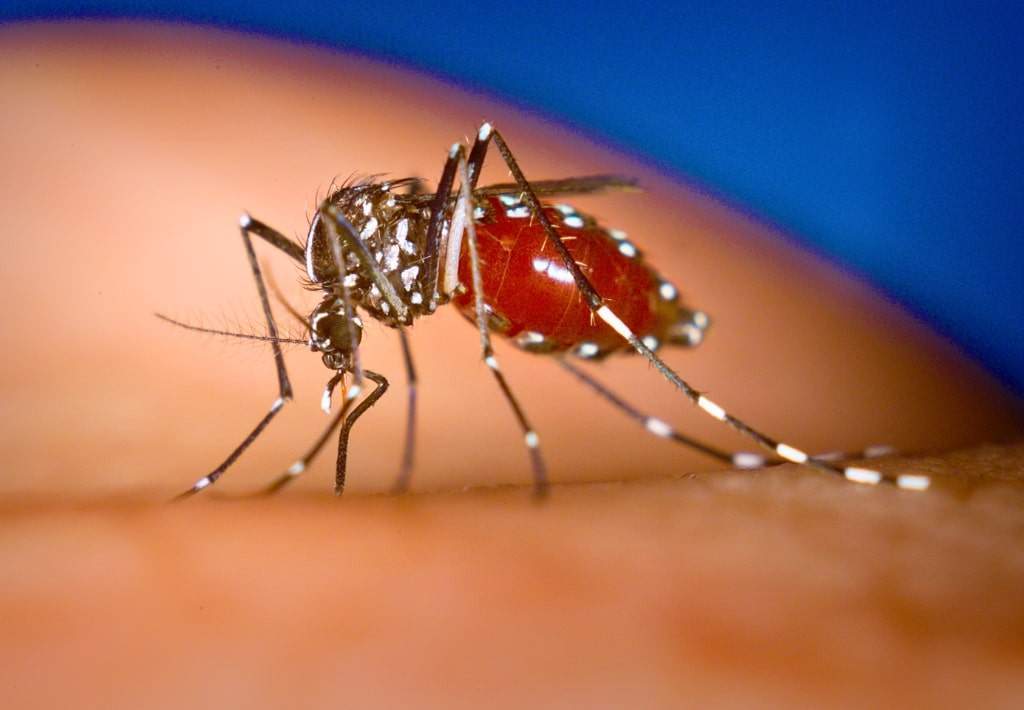
Mosquito Survival Guide
The world’s deadliest insect is so tiny you can crush it with your finger, yet it is responsible for killing millions of people. This pest only needs to give you a small bite to cause fatal infections.
The mosquito is prone to carrying several diseases, such as dengue fever, chikungunya, and the most common, the West Nile virus.
Malaria is the most severe disease, and this pest can spread it through its bite. Malaria kills about a million people a year, including women and children.
Since there was no treatment or vaccine, the Zika virus was declared a global public health emergency in 2016 as mosquitoes spread it in the early to mid-2010s.
As deadly as mosquitoes can be, there are steps you can take to prevent becoming a victim of one of these tiny pests.
How Mosquitoes Transmit Diseases
A mosquito transfers disease by biting an infected host and then another uninfected individual.
During the feeding process, the mosquito ingests the pathogens with the blood. These pathogens then replicate or develop within the mosquito before moving to its salivary glands. When the mosquito bites again, it injects its saliva, which now contains the pathogens, into the new host’s bloodstream, thus transmitting the disease.
This cycle enables the spread of diseases such as malaria, dengue, and Zika among human populations.
Identifying Mosquito-Borne Diseases
Navigating the world of mosquito-borne diseases means being vigilant about the risks and adept at recognizing symptoms. It’s not just about avoiding bites; it’s about knowing what signs to watch for if you or someone you know gets bitten. Here are some expert tips and strategies to keep you informed and safe:
- Stay Informed: Keep up with local health alerts and updates on outbreaks.
- Know the Symptoms: Familiarize yourself with typical symptoms of diseases like malaria (fever, chills), dengue (severe headache, pain behind the eyes), and Zika (mild fever, rash).
- Seek Medical Advice Promptly: Consult a healthcare provider immediately if you exhibit symptoms after a mosquito bite.
- Use Preventive Measures: Beyond symptom recognition, proactive use of repellents and mosquito nets can significantly reduce the risk of being bitten.
- Understand Specific Risks: Each disease has unique risks depending on geographic location, season, and local mosquito populations.
- Seek Timely Medical Intervention: Early recognition of symptoms is crucial to prevent severe outcomes.
- Prevent Complications: Knowing these symptoms helps you seek medical advice early to avoid them.
Did You Know?
The mosquito has caused more human deaths than any other creature in history.
Mosquito Survival Tips and Strategies
Navigating a world where mosquitoes are not just a nuisance but a real health threat requires a solid strategy.
Let’s review some expert advice and practical steps to protect yourself and your loved ones from these pesky vectors.
This guide is your first line of defense against the diseases they carry, from understanding their behavior to employing effective prevention techniques.
Keep Covered Up
Studies have proven that mosquitoes are attracted more to darker colors.
Therefore, wear lighter colors such as white or khaki when going outside. It would help to cover as much of your skin as possible.
Long-sleeved shirts and long pants will do the trick.
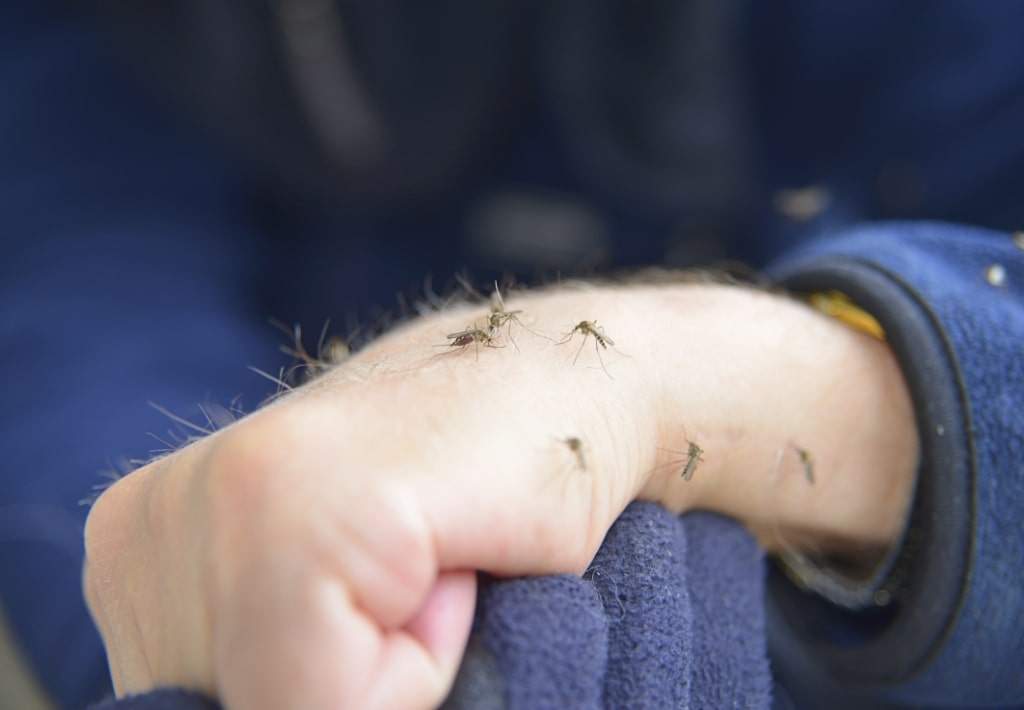
Personal Protection: Effective use of repellents, clothing, and mosquito nets.
In the battle against mosquitoes, personal protection is your frontline defense. Let’s dive into some expert tips and strategies:
- Repellents: Choose DEET, picaridin, or oil of lemon eucalyptus-based products. Apply according to instructions for maximum effectiveness.
- Clothing: Wear long sleeves and pants, especially during peak mosquito activity. Light-colored clothing can also help deter mosquitoes.
- Mosquito Nets: Use insecticide-treated nets for sleeping areas, especially in high-risk zones. This barrier can be a lifesaver.
- Avoid Scented Products: Perfumes and scented lotions can attract mosquitoes. Opt for unscented body products.
- Use Indoor Fans: Mosquitoes are weak fliers. A strong fan can help keep them away from living spaces.
- Secure Windows and Doors: Install screens to prevent mosquitoes from entering your home.
- Stay Indoors During Dusk and Dawn: These are peak mosquito activity times.
Police Your Home
Mosquitoes are not a fan of breezes. Have fans going into your home to help circulate the air.
Find a drain and remove any standing water around your home. Look for pots, pans, water bowls, puddles, or anything else holding water. Mosquitoes spawn in standing water.
Install screens on any windows throughout your home. If you currently have screens, inspect them for any rips or tears where these pests can gain entry.
Here are a few tips to turn your home and surroundings into a no-fly zone for mosquitoes. These involve some intelligent strategies.
- Eliminate Standing Water: Drain areas where water collects to prevent breeding.
- Use Mosquito Traps: Install traps around your property to catch mosquitoes.
- Grow Repellent Plants: Citronella, lavender, and marigold deter mosquitoes naturally.
- Maintain Yards: Keep grass short and trim bushes to reduce resting spots.
- Repair Screens: Ensure windows and doors are properly sealed with intact screens.
- Use Outdoor Fans: Air movement discourages mosquitoes from lingering.
- Apply Insecticides: Use approved insecticides in your yard cautiously.
- Install Mosquito Nets: Protect sleeping areas with mosquito nets if necessary.
- Opt for Covered Porches: Use screens around porches to enjoy the outdoors safely.
- Embrace Natural Predators: Encourage bats and birds that feed on mosquitoes.
Safe Use of Insecticides: Choosing and applying insecticides responsibly.
A good insect repellent is one of the best ways to protect yourself from the Zika virus and other diseases.
Navigating the world of insecticides for mosquito control means being both cautious and informed.
Here’s how you can use these products safely and effectively:
- Choose EPA-Approved Insecticides: Ensure the product is safe for residential use.
- Read Labels Carefully: Follow application instructions and safety warnings to the letter.
- Wear Protective Gear: Gloves and masks can protect you during application.
- Apply During Optimal Conditions: Avoid windy days and apply at times when beneficial insects are less active.
- Store Safely: Keep insecticides in a secure location away from children and pets.
Dirty Mosquitoes
Female mosquitoes are the only ones that bite; males are vegetarians. Females don’t just bite you, they pee on your after they suck your blood.
Natural Remedies
Natural remedies for mosquito protection can be both eco-friendly and effective.
Here’s how you can harness the power of plant-based repellents:
- Citronella is widely used in candles and oils and’s known for its mosquito-repelling properties.
- Lavender: Besides its soothing scent, lavender can deter mosquitoes when planted around your home or used as an oil.
- Lemon Eucalyptus Oil: Recognized by the CDC, it’s a potent natural repellent.
- Peppermint: In oil form, it can repel mosquitoes and soothe bites.
- Marigold: Planting these around your garden can be a natural bug deterrent.
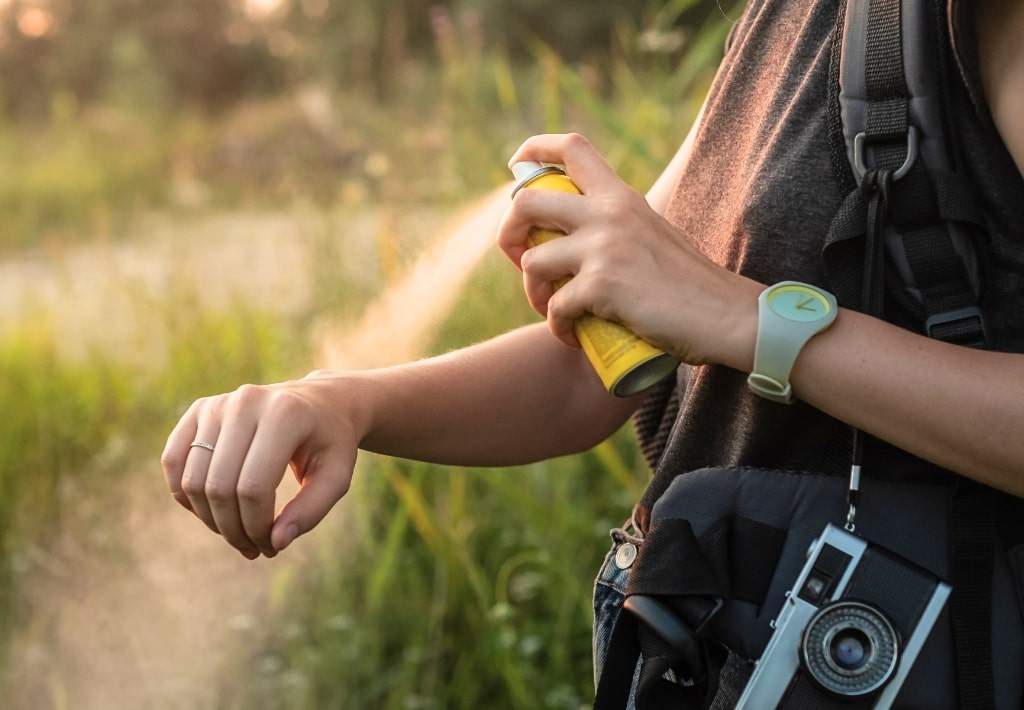
Vaccination and Medical Precautions
When considering vaccination and medical precautions against mosquito-borne diseases, staying informed about the vaccines and medications available for prevention is crucial.
Here are some key points to consider:
- Research Vaccines: Certain diseases, like Yellow Fever, have effective vaccines. Check with health authorities if traveling to affected areas.
- Preventive Medication: For malaria, prophylactic medication can be taken before, during, and after visiting high-risk areas.
- Stay Updated: Health advisories change, so consult healthcare providers for the latest recommendations.
- Consult with a Travel Clinic: Especially before international travel, to get region-specific advice.
- Carry Emergency Medication: If recommended, carry medication immediately to treat symptoms.
- Awareness of Symptoms: Know the signs of diseases in your destination for early detection.
Emergency Response to Deadly Mosquitoes
Quick and informed action is essential in the face of a suspected mosquito-borne infection.
Here’s what you can do:
- Seek Medical Attention: Promptly consult a healthcare provider for a proper diagnosis and treatment plan.
- Report Travel History: Inform your doctor about recent travel to areas known for mosquito-borne diseases.
- Rest and Hydrate: Support your body’s recovery with plenty of rest and fluids.
- Follow Prescription Advice: Complete the course by taking any prescribed medication as directed.
- Monitor Symptoms: Keep a detailed record of any symptoms as they develop, which can be crucial for diagnosis and treatment.
- Avoid Mosquito Bites: During the infectious period, take measures to avoid mosquito bites to prevent the disease from spreading to others.
- Inform Close Contacts: If you’re diagnosed with a mosquito-borne disease, inform those you’ve been in close contact with, as some diseases can have broader implications.
Travel Safety
When traveling to regions where mosquitoes are prevalent, embracing a comprehensive safety strategy is critical.
Beyond the basics, consider timing your outdoor activities to avoid peak mosquito hours, typically dusk and dawn. Research the specific diseases present in your destination and understand the symptoms. Stay in air-conditioned or well-ventilated lodgings where possible. Contact local health systems or travel clinics for up-to-date advice and potential outbreak warnings.
Adaptability, awareness, and proactive measures form the cornerstone of staying safe in mosquito-dense areas, ensuring your travels are memorable for the right reasons.
Heading to mosquito-prevalent regions requires a strategic approach to ensure your safety. Here’s how:
- Consult Health Professionals: Before traveling, seek advice on vaccinations and preventive medications.
- Pack Smart: Include long-sleeved shirts, pants, and mosquito repellent in your travel kit.
- Stay in Screened Accommodations: Choose places with practical mosquito barriers.
- Use Mosquito Nets: Sleep under treated nets, especially in areas with high disease transmission.
- Apply Repellent: Regularly use EPA-approved skin and clothing repellents.
- Stay Informed: Keep up with local health advisories during your trip.
Fun Facts About Deadly Mosquitoes
Here are a few fun facts about the most dangerous insect in the world:
- Mosquitoes are one of the deadliest animals on Earth due to their disease-transmission capabilities.
- Only female mosquitoes bite humans; they need blood to develop their eggs.
- There are over 3,500 species of mosquitoes worldwide.
- Mosquitoes can detect carbon dioxide from 75 feet away, which helps them find their hosts.
- Some species prefer biting animals over humans.
- Mosquitoes are known to spread diseases like malaria, dengue fever, Zika virus, and West Nile virus.
- They have been around for more than 100 million years.
- Mosquitoes hibernate. Some species go into a dormant state during colder months.
- They are excellent at adapting to various environments, except for extreme cold.
- The lifespan of a mosquito can range from a few weeks to several months, depending on the species.
- Mosquitoes can breed in as little water as a bottle cap.
- They are most active at dawn and dusk.
- Female mosquitoes can lay up to 300 eggs at a time.
- Mosquito wings beat 300-600 times per second.
- They are attracted to body heat and sweat because of the chemicals they contain.
- Certain types of light, such as LED lights, attract fewer mosquitoes.
- Mosquitoes are found on all continents except Antarctica.
- The Anopheles mosquito is explicitly known for transmitting malaria.
- Some people are more attracted to mosquitoes due to their blood type, body odor, and carbon dioxide output.
- Mosquitoes have been found to prefer blue to other colors.
- They have poor vision and rely on detecting chemical signals to find their prey.
- Only a few species are responsible for most disease transmission to humans.
- Climate change is affecting mosquito breeding patterns and disease transmission.
- Mosquito saliva contains anticoagulants to prevent blood from clotting while they feed.
- Some mosquito species are considered pollinators for specific plants.
- They have a four-stage life cycle: egg, larva, pupa, and adult.
- Mosquitoes can detect lactic acid up to 100 feet away.
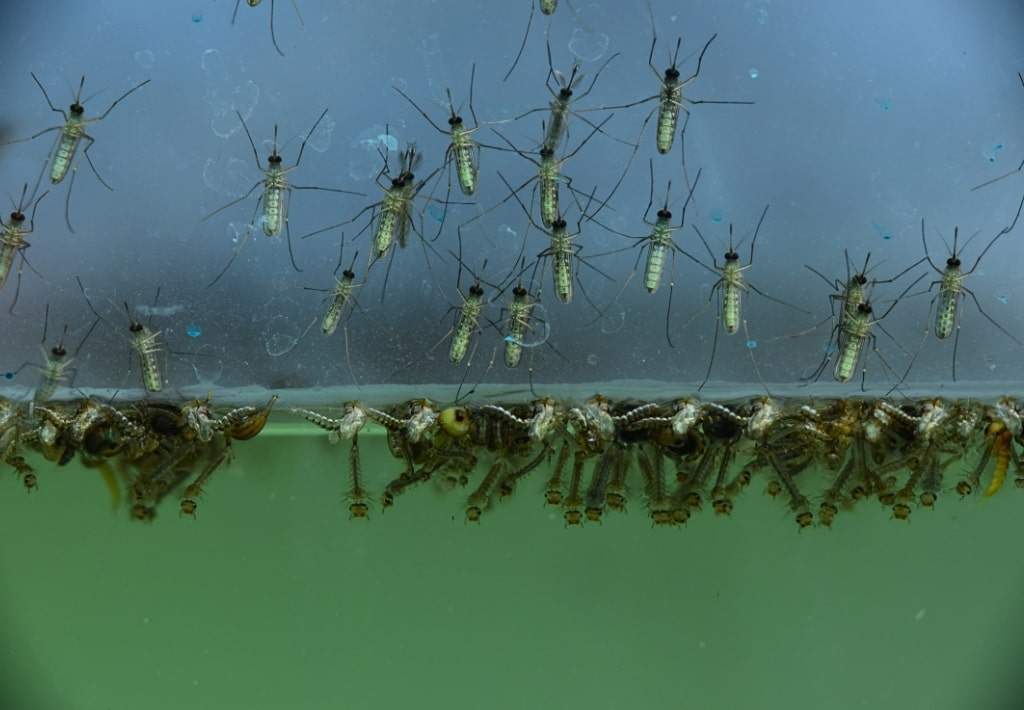
More Wild Frontier Scenarios
How to Survive a Mountain Lion Attack
Learn how to survive a mountain lion attack with practical steps to protect yourself and stay safe in. Surviving a…
How to Survive a Raccoon Attack
It’s a quiet evening, the moon is out, and maybe you’re taking out the trash or just enjoying a night…
How to Survive a Wild Boar Attack
Encountering a wild boar is like meeting your ex at a grocery store—unexpected, unnerving, and, in most…
How to Survive a Swarm of Bees
Surviving a bee swarm might sound like a scene out of a movie, but it’s a real concern for those who…
How to Survive a Skunk Spray
Getting sprayed by a skunk is a smelly situation that no one wants to find themselves in. However, if…
Recent Survival Posts
How to Survive a Layoff
Layoffs feel personal—even when they’re not. One day, you’re responding to Slack messages and forwarding…
How to Survive a Drug Test
I never imagined I’d be so emotionally invested in a paper cup. But there I was, standing under the fluorescent…
How to Survive an Interrogation
If you’ve ever been caught in the crosshairs of an overly enthusiastic mall cop or stared down by someone…
How to Survive a Nightclub Shooting
Nightclubs pulse with life—lights flashing, music pounding, bodies packed tight on the dance floor. It’s a place to…
How to Survive a Bachelor Party
A bachelor party is a delicate mix of celebration, chaos, and questionable decision-making, wrapped…
More Wild Frontier Survival Scenarios

How to Survive a Raccoon Attack
It’s a quiet evening, the moon is out, and maybe you're taking out the trash or enjoying a night on your porch. And suddenly, out of the shadows, bam! There it is—those black-ringed eyes glowing at you like some creature from a raccoon version of “The Shining.” If...

How to Survive a Wild Boar Attack
Encountering a wild boar is like meeting your ex at a grocery store—unexpected, unnerving, and, in most cases, best avoided. Yet, wild boars aren't interested in your baggage or drama; they're just trying to mind their own business—unless they think you're a threat....
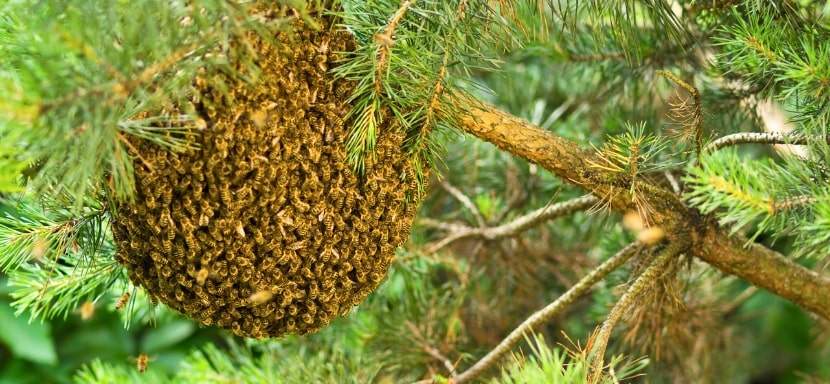
How to Survive a Swarm of Bees
Surviving a bee swarm might sound like a scene out of a movie, but it's a genuine concern for those who love the outdoors. Imagine this: you're hiking on a beautiful sunny day, enjoying the tranquility of nature, when suddenly you hear a low buzzing sound that...

How to Survive a Skunk Spray
Getting sprayed by a skunk is a smelly situation that no one wants to find themselves in. However, if you do end up as a target of this defensive mechanism, knowing how to handle the aftermath can make a huge difference. Let's explore some practical steps and advice...

How to Survive a Bear Attack
Bear Attack Survival Tips and Strategies Though rare, bear attacks can occur because bears remember food locations for years and may silently track humans to assess threats or follow scents. Surviving a bear attack involves more than just reacting during an encounter;...
More Survival Scenarios

How to Survive a Layoff
When the Floor Falls Out: The Reality of a Layoff Layoffs feel personal—even when they're not. One day, you're responding to Slack messages and forwarding emails. Next, you're staring at your monitor as it logs you out... for good. Whether it's a restructuring, a...

How to Survive a Drug Test
The Cup, The Room, The Truth I never imagined I’d be so emotionally invested in a paper cup. But there I was, standing under the fluorescent hum of a strip-mall clinic, trying to recall the last time I ate a poppy seed bagel. That’s the thing about drug tests—they...

How to Survive an Interrogation
If you've ever been caught in the crosshairs of an overly enthusiastic mall cop or stared down by someone in a uniform with a clipboard and a glare, you’ve felt it — the chilly fingers of interrogation anxiety. And while most of us imagine interrogation scenes as...

How to Survive a Nightclub Shooting
Nightclubs pulse with life—lights flashing, music pounding, bodies packed tight on the dance floor. It’s a place to escape, feel the rhythm, and lose yourself in the crowd. But that same energy can turn deadly in seconds, transforming a night of fun into one of the...

How to Survive a Bachelor Party
A bachelor party is a delicate mix of celebration, chaos, and questionable decision-making, wrapped in the noble intention of sending the groom off into married life with a night he’ll (hopefully) remember. It’s a ritual as old as time—well, as old as men deciding...

How to Survive Your First Time at the Gym
Walking into a gym for the first time can feel like stepping into an alien world. The machines hum with purpose, the regulars move confidently, and you’re left standing there, clutching your water bottle, wondering whether you’re in the right place—or on the right...

How to Survive a Worldwide Communications Breakdown
Imagine waking up to silence. Your phone doesn’t buzz, your email won’t load, and even your local radio station crackles with static. A worldwide communications breakdown has hit. What next? For many, this doomsday scenario may sound like the opening lines of a...

How to Survive a Flash Flood While Driving
Surviving a flash flood while driving requires quick thinking, calmness, and a solid plan to ensure your safety. Preparation can make all the difference between a close call and a catastrophe in emergencies like this. This guide provides practical advice to protect...

How to Build an Emergency Kit
Emergencies don’t knock politely at the door. They barge in, uninvited, like a distant relative with a penchant for drama, turning your world upside down without warning. Whether it’s a power outage, a natural disaster, or an unexpected evacuation, the key to staying...
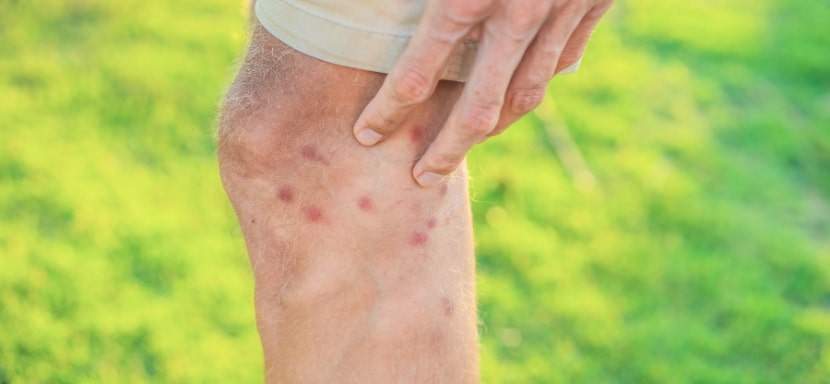
How to Protect Yourself From Insects in the Wild
There’s nothing like being out in the wild—birdsong echoing through the trees, the fresh scent of earth, and a deep sense of peace that makes you think, “Ah, this is what life is about.” But then comes the buzzing. Mosquitoes, ticks, and flies swoop in like uninvited...
